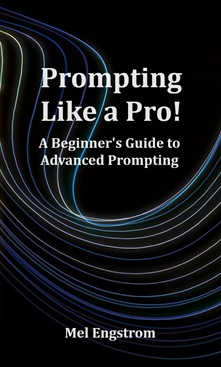Books are crazy complicated to write—there are thousands and thousands of micro-level decisions to make.
But what if you had another pair of eyes to track your missteps? Heck, wouldn’t it be nice to have another person to bounce ideas off of, too? How about someone who expresses no judgement?
All of that is available to you. Now. with AI.
You’re smart. I don’t doubt that you’re willing to write a whole book by yourself, no help needed. You’re a writer. But getting a personal assistant to mind the details is just smart.
I’ve reviewed some AI book writing options for you. From pros and cons to pricing structure, the details are at your fingertips.
Many of these AI platforms you can use today at no cost to you. Let’s take a look.
1. ChatGPT by OpenAI:
Overview
You’ve heard of this one before, haven’t you? Then you know that it’s one of the most popular AI platforms on the planet.
And for good reason.
Possibly the best AI for writing a book? We’ll see.
It’s nearing human intelligence in its responses to users. If you need to brainstorm, it’s got you covered. If you need to write long-form content, it works.
Use it for everything from chapter outlines to completing scenes. You got this.
Pros:
- Human-like Writing: The text it produces isn’t just coherent but actually natural-sounding.
- Customizability: It works for different genres AND writing styles. Be as proper or as weird as you’d like. It’ll be able to build off of your existing voice.
- Interactive: No need to wrack your brain figuring out how to talk to ChatGPT to get it to do what you want. You can have real-time conversations of the complexity you would with an ACTUAL person.
Works great for brainstorming plots or improving character development. Just bounce ideas off of it.
Cons:
- Mostly Free: Most of these features come at zero cost. However, the most advanced stuff is still behind a paywall.
- Occasional Inconsistencies: Hey, sometimes the text is incoherent. Sometimes it’s annoyingly repetitive. But, hey, AI usually requires some human oversight to perform well. Which I’m sure you know.
Best For: If you want a smooth collaborative experience. ChatGPT is more satisfying to have a conversation with than most other AI. Also: Good for writers working on fiction or character-driven narratives.
2. Sudowrite
Overview
This AI is SPECIFICALLY DESIGNED for fiction. This may just be the best offering for a novelist. One drawback: not as good for non-fiction.But, overall, Sudowrite is a novelist’s best friend.
It does it all: making descriptions, plot twists, dialogue, and (surprisingly) fight scenes.
And it comes with prompts you can use to build on the creative brilliance of your ideas.
Pros:
- Fiction Focus: Tailored specifically for storytelling, making it great for novelists.
- Sensory Description Assistance: What writer doesn’t need vivid descriptions and sensory details? Sudowrite aids you with those features to help enhance your stories.
- Collaborative Mindset: Acts like a virtual writing partner, helping you brainstorm and develop story arcs.
Cons:
- Subscription Model: Sudowrite isn’t free. It operates on a subscription basis.
- Limited Non-Fiction Features: While it’s great for fiction, non-fiction writers will find it less useful.
Best For: It depends… Looking for some inspiration and some outside support to help you realize that inspiration? Are you also a fiction writer? Then Sudowrite is for you.
3. Jasper AI
Overview
Jasper AI is designed to go the distance with you in the marathon that is writing a book. Not all the AI mentioned today is ESPECIALLY good with long-form content.
Jasper masters the long form of book writing. Generate a substantial amount of text lightening quick.
Pros:
- User-Friendly: One of the most important features you’ll find in any tech product: Intuitiveness. The interface is even intuitive for beginners.
- Versatile: Works for fiction, non-fiction, blogging, marketing content. And more.
- Boss Mode: You can guide the creative process with commands. More creative control to flex your skills with.
Cons:
- Learning Curve: You’ll need to know how to create effective prompts if you want to get the best out of Jasper. It’s easy to use. There’s just the little hiccup of needing the prompting skills to make the output even better.
- Subscription Required: You need to subscribe to access Boss Mode and other advanced features.
Best For: Writers working in fiction OR non-fiction. Lovers of creative control.
4. Writesonic
Overview
Writesonic doesn’t just deal with long-form, it’s helpful for books especially. It acts as your personal assistant (doing the grunt work of generating book outlines, chapter summaries, and aiding you with first drafts).
If you value versatility, well, this AI also works for blogging and marketing content.
Pros:
- Versatile: They’ve got you covered for different writing tasks, from novel writing to article creation.
- Affordable: You can get in on this AI for a decent price. Especially compared to competitors.
- Multiple Templates: Would you like some short cuts to help you out with your writing needs? How about some templates for introductions, dialogue, and storylines? Enjoy.
Cons:
- Quality Variability: Unfortunately, quality is inconsistent. This requires more editing from you.
- Limited Customization: Less customization available compared to tools like ChatGPT or Sudowrite. Which means less creative control. Unfortunately.
Best For: Writers on a budget looking for an affordable AI tool that can handle a VARIETY of writing tasks.
5. GrammarlyGO
Overview
GrammarlyGO is an extension of Grammarly (you know, the grammar checker). This tool is NOT for grammar checking. It’s actually for AI content creation.
What it does well is offering suggestions to your writing (like tone and structure). It may even suggest full rewrites of portions of your text.
Interested?
Pros:
- Excellent for Editing: It’ll improve the clarity of your writing tenfold. Clarity. Coherence. Quality. That’s what can be expected from the company that specializes in grammar.
- AI-Powered Suggestions: The suggestions offered are from an AI with the intelligence you’d expect from such a program. There are genuinely smart suggestions for generating your content and phrasing.
- Integrated with Grammarly: It’s a double whammy. You get GrammarlyGO and Grammarly. So, you get the most complete check of your grammar available in addition to high level suggestions.
Cons:
- Less Creative: Listen, GrammarlyGO is still limited in similar ways to its predecessor. It’s mostly focused on editing and refining than generating fresh content.
- Subscription-Based: You need a Grammarly Premium subscription to access GrammarlyGO features.
Best For: Writers looking to POLISH their manuscripts rather than generate them.
Which AI Writing Tool Is Right for You?
It depends on your specific needs:
- For Fiction Writers: Sudowrite and ChatGPT are the go-to options for a fiction writer.
Sudowrite is designed for storytelling. ChatGPT offers more enjoyable collaborative conversation (and a natural flow of dialogue).
You could certainly do worse than to have these two programs in your wheelhouse. Why not give them a try? See which you like best. - For Non-Fiction Writers: Jasper AI and Writesonic are excellent choices. They’re made to handle structured, informative content exceedingly well.
- For Editing and Polishing: GrammarlyGO is the choice if you’re looking for advanced editing assistance.
Final Thoughts
Writing a book is a different beast than writing an article or a blog post. You were right to specifically search for AI that specializes in books.
While none of these options are advertised as being champions at writing books, a thorough review shows them as stand outs.
Which one will you try first? Many of them are free, so you can’t go wrong.
Hey. Send me an email when you get a bestseller.
Love,


